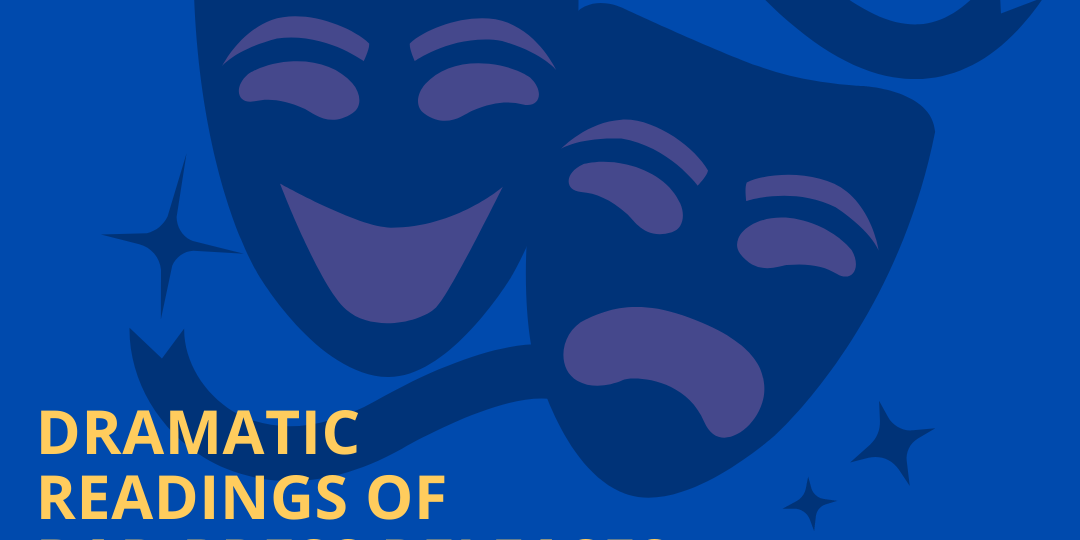And oh, the fun! Befitting of the entertainment capital of the world, today PRSA LA invited our community to enjoy 60 minutes of dramatic readings of bad press releases, offered in award-winning style by our illustrious media guests including food & travel author Amber Gibson; producer, LA TIMES TODAY at Spectrum Jennie O’Hagan; beauty and wellness reporter with Glossy Magazine Emma Sandler; and Lillian Vasquez, host for KVCR 91.9 Radio and KVCR-T. How’s that’s for a PR Playbill dream?
We asked our four learned writers to dig up the worst press release they had seen of late, and to share them with our guests by reading them very dramatically. They did, and then they graciously shared with us some very savvy tips on what not to do when pitching media, and what do to. Here’s a quick selection of 10 ways we are scaring off media in our pitches. Oh, the drama!
- We’re using marketing speak. Does it sound like your product description on Amazon or something you’d write for your web page? If so, ouch. Leave that jargon for the sales team and write something with journalistic integrity: Who, what, where, and most importantly why.
- Our pitch is too long. One of the journalists read two full pages of a “press release” and then said she had to stop “because it went one for another three pages.” Rarely are PR pro’s writing five page long press releases, but truth is, if you can’t get the big idea out in the first paragraph, you’re doomed.
- It’s repetitive. A dangerously long-winded release can be filled with a rehash of ways to present the product, brand, or activity. Get to the point, share it succinctly, and move on to the next one.
- There’s no visual. For a broadcast journalist, the image is just as important as the idea. Have you suggested a possible production idea to go along with your pitch? Did you mention you’ve got an idea to make this jump out on screen? Make their job easier by saying which moment of the program this might make a fit, and tell them how!
- Excuse me? If you’re starting off your pitch by saying “Hey, babe! Hope you’re doing well — it’s Fri-YAY!” and you don’t even have the faintest idea who the writer is, stop and start again. Journalists do read their emails and you know, it’s just a little too personal. You’re not at a bar at 2am sharing lipsticks with strangers (Ewww! Did we ever really do that???) so try to be a little more professional, please.
- Our release title and/or email subject sucked. More than one of the journalists read press releases which did not use the key words of the release in the title itself. Remember, the subject of your email and the title of your release has to give an inkling of the key elements inside. If you can’t make it sound as smart like a soundbite, don’t expect the journalist to do it for you either.
- It wasn’t fit to print. Not all emails are read on screen – some media actually like to print out an interesting story idea and take notes. But if your release is six pages long, apart from harming our environment, you’re harming your chances of your release ever being read.
- We said “viewers” rather than “readers.” Journalists do take the time to read their emails (we love you for doing that, really we do) so using the wrong word to describe their outlet(s) might be a deal breaker. Deleting an email is easy and sometimes a defense mechanism, so let’s show them some respect. That said, nearly all the writers said they are more lenient when it comes to an obvious “Hello Jennie” instead of “Hello Jenny” but still. Our chances are much better if we do our homework.
- Our pitch reeked of cultural appropriation. Trending topics are a dime a dozen, and your journalist will sense when you’re jumping onto the latest one without real knowledge or authority. If you’re talking about an ancient culture’s customs, be prepared to have someone who can speak of it with credibility or risk offending your audience.
- We forgot the three most important things: Location, location, and location. All out invited writers agreed on the importance of saying where the event/opening/sale/activity was happening — and reflected on how many times PR people tend to forget this very important piece of information. Instead of just Los Angeles, can you say in which city or neighborhood? Make their jobs easier by including details which will make the story more relevant to their audiences.
Thank you again to our fab four presenters, and to all the 60+ guests who joined PRSA LA for this fun and informative event! Wishing you success in everything you do.
Melendy Britt|Follow
Integrated Marketing & Communications | Travel, CPG, Healthcare, Wellness & Lifestyle | Bilingual English-Spanish








